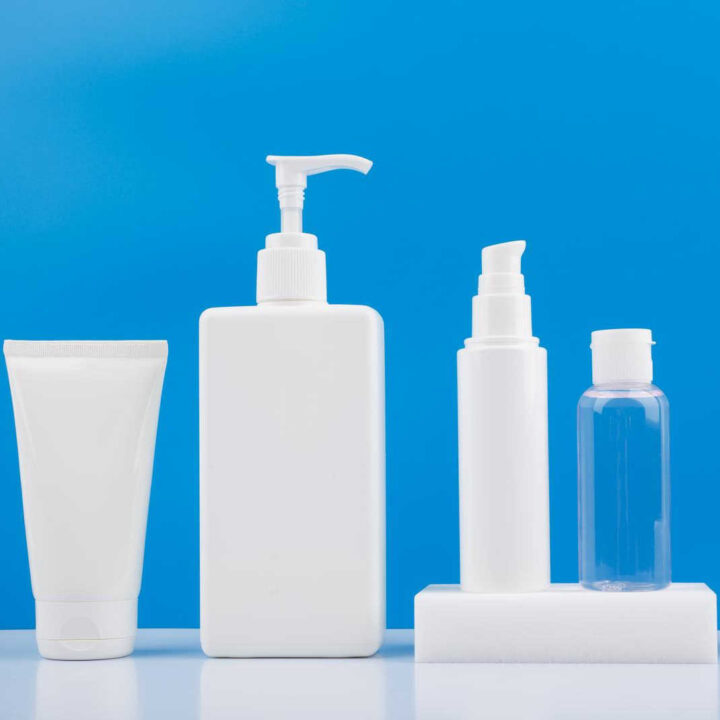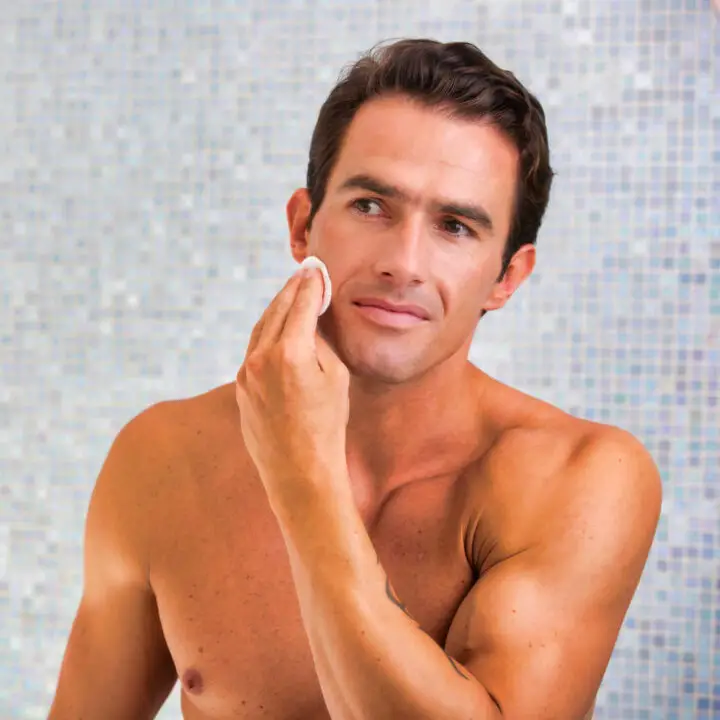
Exfoliating can be an essential part of maintaining healthyt skin. However, for those with sensitive complexions, the thought of exfoliation may seem daunting. In this blog post I’ll look at whether exfoliating is beneficial for sensitive skin and how to do it safely without causing irritation or discomfort.
I’ll also discuss the benefits and risks involved in the process and recommend appropriate products and techniques suited for individuals with fragile skin.
Key Takeaways
- Exfoliating sensitive skin can promote cell regeneration, unclog pores, and improve skin texture.
- However, it also comes with risks of irritation, inflammation, and dryness, so it’s essential to choose the right exfoliants and techniques.
- Chemical exfoliants like PHA – based products or fruit enzyme exfoliants are gentler on sensitive skin compared to physical exfoliants.
- To avoid adverse effects like redness or stinging after exfoliating sessions, follow – up with proper skincare that includes moisturizing regularly, using sunscreen with high SPF protection during daytime activities outdoors.
Benefits And Risks Of Exfoliating Sensitive Skin
Exfoliating sensitive skin offers a range of benefits, including the promotion of cell regeneration, unclogging of pores, and improvement in skin texture. For men who wet shave regularly, incorporating exfoliation into your skincare routine can help maintain a healthy appearance by removing dead skin cells that accumulate on the surface.
Additionally, regular exfoliation helps to prevent clogged pores caused by the buildup of dirt, oil, and debris. As you may know from experience with wet shaving, having a clean canvas is crucial for achieving an even shave and avoiding irritation or ingrown hairs.
But exfoliating sensitive skin can come with potential risks, such as irritation, inflammation, and dryness.
These adverse effects may be particularly concerning for men who wet shave because the act of shaving itself can already cause some degree of skin sensitivity. For instance, using a harsh exfoliant or over-exfoliating may lead to micro-tears in the delicate facial skin which worsens irritation and increases vulnerability to infection.
To avoid these problems while still enjoying the benefits of exfoliation before a wet shave, consider incorporating milder chemical agents such as lactic acid into your routine.
Lactic acid is not only gentle on sensitive skin but also effectively battles acne by promoting microbial balance in the skin’s ecosystem.
How To Exfoliate Sensitive Skin Safely
To exfoliate sensitive skin safely, it is important to choose the right exfoliating product and use gentle techniques while avoiding over-exfoliation; Follow up with proper skincare for optimal results.

Choose The Right Exfoliant
Selecting the appropriate exfoliant for sensitive skin is important to avoid irritation and achieve desired results, particularly for men who wet shave. Consider the following points when choosing an exfoliant:
- Opt for gentle chemical exfoliants: Chemical exfoliants can be gentler on sensitive skin compared to physical exfoliants, making them more suitable for those with delicate complexions.
- Seek out PHA-based products: Polyhydroxy acids (PHAs) are known for their mild yet effective properties, helping to unclog pores without causing redness or inflammation.
- Try fruit enzyme exfoliants: Papain and bromelain enzymes derived from fruits like papaya and pineapple provide a gentle alternative to harsher BHAs (beta hydroxy acids) and AHAs (alpha hydroxy acids).
- Research recommended products: read ingredient lists, product descriptions and user recommendations to find well-regarded options worth considering.
- Consult a dermatologist if unsure: A professional opinion can help determine the most suitable product and technique tailored to your specific sensitive skin concerns, ensuring a smooth complexion and successful shaving experience
Use Gentle Techniques And Avoid Over-exfoliation
Exfoliating can be a great addition to men’s skincare routines, but it’s essential to do so safely with sensitive skin. Follow these tips to ensure you’re using gentle techniques and avoiding over-exfoliation:
- Choose a mild exfoliator that won’t irritate your skin. Look for ingredients like alpha-hydroxy acids (AHAs) or beta-hydroxy acids (BHAs), which are gentler than physical exfoliators like scrubs.
- Use nonabrasive techniques, such as applying your exfoliant with a cotton pad or soft brush rather than rubbing it in with your hands.
- Don’t overdo it! Exfoliating too frequently can damage the skin barrier and lead to redness, flaking, or irritation. Opt for once-a-week exfoliation sessions at most.
- Protect your skin barrier by following up your exfoliation with a hydrating serum or moisturizer. This will help soothe any potential irritation or inflammation.
- If you experience any adverse effects like burning or stinging, stop using the product immediately and moisturize your skin.
By taking these steps, you can incorporate gentle exfoliation into your skincare routine without causing unnecessary irritation or sensitivity.
Follow Up With Proper Skincare

After exfoliating sensitive skin, follow up with proper skincare to avoid any negative effects. Here are some tips on how to do so:
- Moisturize: Exfoliation can strip the skin of its natural oils, leading to dryness and irritation. Apply a moisturizer immediately after exfoliating to keep your skin hydrated.
- Use sunscreen: Exposure to the sun’s harmful rays can further damage sensitive skin after exfoliation. Protect your skin by using sunscreen with a high SPF.
- Avoid harsh products: After exfoliating, use mild and gentle products that won’t irritate your skin further.
- Don’t over-exfoliate: It’s important not to overdo it when it comes to exfoliating sensitive skin. Stick to once a week at most.
- Be gentle: When drying off your face, don’t rub too hard with a towel– instead, pat gently until dry.
- Stick to a skincare routine: Incorporate a consistent skincare routine into your daily life that includes gentle cleansers and moisturizers, as well as weekly exfoliation if needed.
By following these steps, you can ensure that your sensitive skin stays healthy after proper exfoliation.
Conclusion: Exfoliating Sensitive Skin Can Be Good For You If Done Properly With The Right Products And Techniques
Exfoliating sensitive skin can bring about numerous benefits if done correctly. It helps to promote cell regeneration, unclog pores, and improve skin texture.
However, it is crucial to choose the right exfoliant and use gentle techniques to avoid irritation or dryness. Whether you prefer chemical or physical exfoliation methods, make sure it aligns with your skin type and sensitivity level.
In short, a well-executed skincare routine that includes mild exfoliation can help you achieve healthy-looking radiant skin while keeping redness at bay.
About The Author: Otto Wright is a wet shaving and freelance writer.
